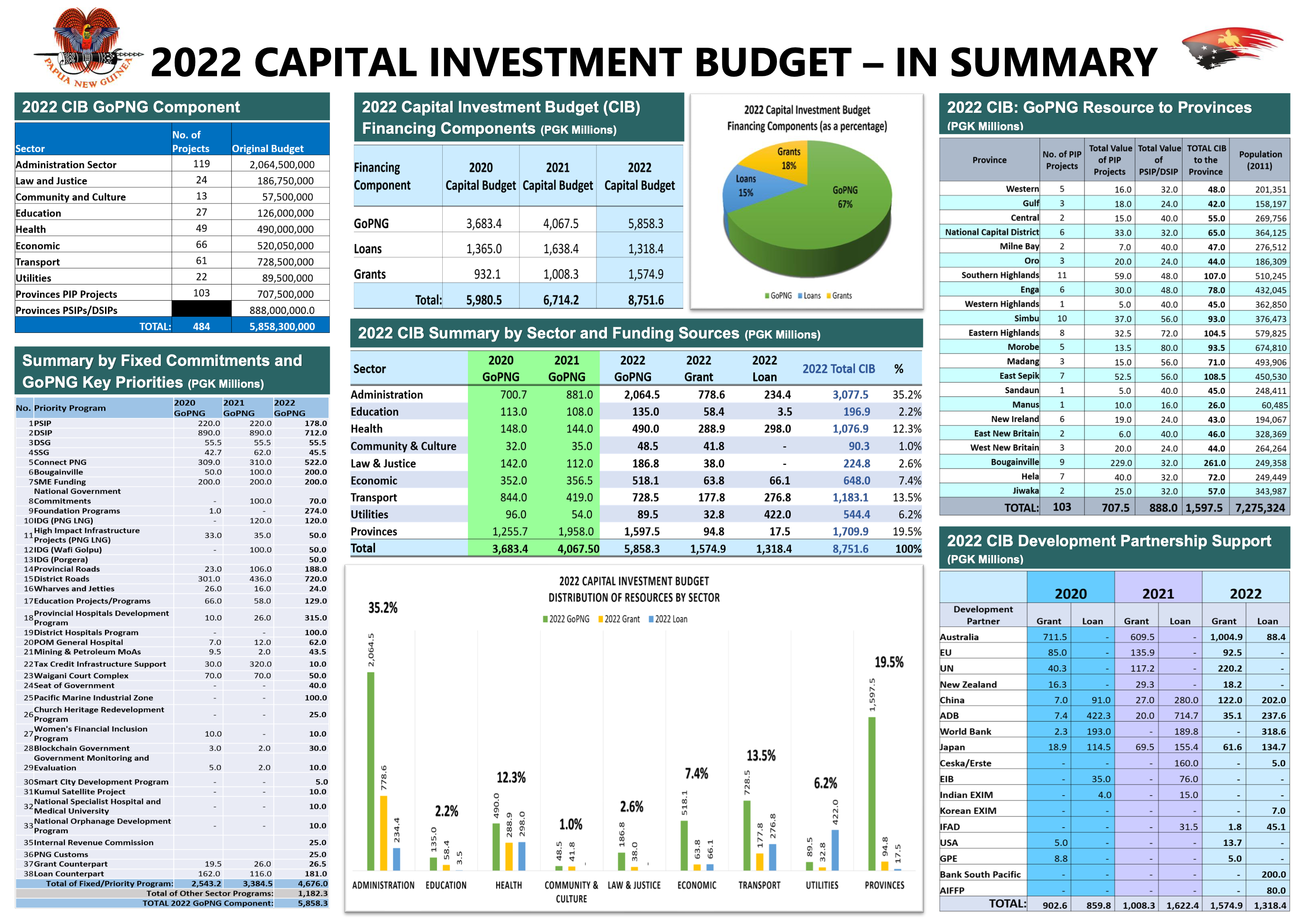National Strategy for Responsible Sustainable Development (StaRS)
The StaRS is the policy shift in long term planning to guide the actions of current and future governments to position PNG towards attaining the following goals:
• Being a leader in the promotion and establishment of the responsible sustainable development paradigm,
• Be a prosperous middle income country by 2030, and
• Be among the top 50 countries on Human Development Index by 2050.
This new perspective acknowledges that the medium term development challenges require some reliance on the exploitation of primary resources to fund the investment needed for an inclusive and innovative green economic growth as well as in education, health and law and order sectors.
StaRS introduces three enabling dimensions that are essential for transitioning from the brown driven growth to inclusive green growth. These are:
• A national green growth plan to create enabling conditions, • Green growth main streaming mechanisms to ensure opportunities are explored through existing economic activities, and • Green growth policy instruments to tap specific opportunities within spatial and resource systems.
Based on the platform of these three enabling dimensions, it recommends a framework of guiding principles based on the principles of sustainable development, to help sector planners to craft and manage sectorial development plans. These guiding principles are:
1. Internalizes externalities,
2. Drives innovation,
3. Maintains economic growth,
4. Open and competitive markets and avoid trade restrictions,
5. Creates decent work and green jobs,
6. Inclusive, democratic, participatory, accountable and transparent Governance,
7. Equitable, fair and just – between and within countries and between generations,
8. Poverty reduction, well being, livelihoods and social protection, access to essential
services,
9. Facilitates education and skills development,
10. Supports human rights and workers' rights,
11. Retains and protects biodiversity and ecosystems and services,
12. Is resource and energy efficient,
13. Respect planetary boundaries or ecological limits,
14. Sustainable consumption and production,
15. Below carbon and low emissions,
16. Precautionary approach,
17. Is a means for achieving sustainable development,
18. Uses integrated approach to decision making,
19. Uses beyond GDP Principle to measure growth,
20. Promotes international cooperation, and
21. Is resilient to risks and shocks.

The StaRS is the policy shift in long term planning to guide the actions of current and future governments to position PNG towards attaining the following goals:
• Being a leader in the promotion and establishment of the responsible sustainable development paradigm,
• Be a prosperous middle income country by 2030, and
• Be among the top 50 countries on Human Development Index by 2050.
This new perspective acknowledges that the medium term development challenges require some reliance on the exploitation of primary resources to fund the investment needed for an inclusive and innovative green economic growth as well as in education, health and law and order sectors.
StaRS introduces three enabling dimensions that are essential for transitioning from the brown driven growth to inclusive green growth. These are:
• A national green growth plan to create enabling conditions, • Green growth main streaming mechanisms to ensure opportunities are explored through existing economic activities, and • Green growth policy instruments to tap specific opportunities within spatial and resource systems.
Based on the platform of these three enabling dimensions, it recommends a framework of guiding principles based on the principles of sustainable development, to help sector planners to craft and manage sectorial development plans. These guiding principles are:
1. Internalizes externalities,
2. Drives innovation,
3. Maintains economic growth,
4. Open and competitive markets and avoid trade restrictions,
5. Creates decent work and green jobs,
6. Inclusive, democratic, participatory, accountable and transparent Governance,
7. Equitable, fair and just – between and within countries and between generations,
8. Poverty reduction, well being, livelihoods and social protection, access to essential
services,
9. Facilitates education and skills development,
10. Supports human rights and workers' rights,
11. Retains and protects biodiversity and ecosystems and services,
12. Is resource and energy efficient,
13. Respect planetary boundaries or ecological limits,
14. Sustainable consumption and production,
15. Below carbon and low emissions,
16. Precautionary approach,
17. Is a means for achieving sustainable development,
18. Uses integrated approach to decision making,
19. Uses beyond GDP Principle to measure growth,
20. Promotes international cooperation, and
21. Is resilient to risks and shocks.


